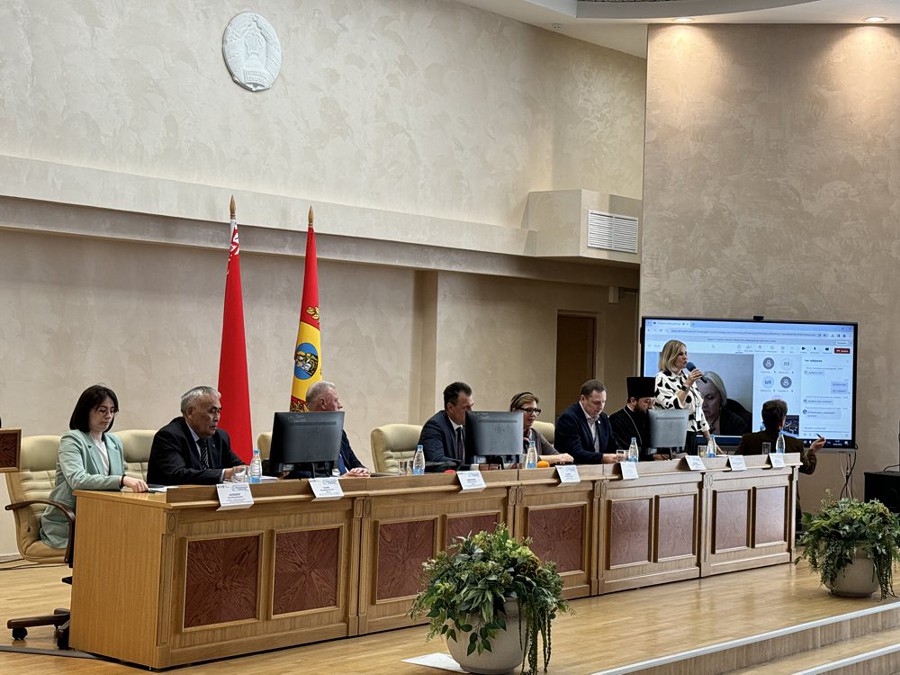RUDN Digital Humanities: what future awaits the humanities in the modern world
A scientific conference “Digital Humanities in the global world” was held at the Belarusian-Russian University in Mogilev (Belarus), one of the organizers of which was RUDN. The event was attended by 250 scientists, postgraduates and students from 10 countries — Armenia, Belarus, Benin, China, Kyrgyzstan, Russia, Tajikistan, Uzbekistan and others. The conference participants discussed the development of the humanities in the context of digitalization.
The development of digital humanities is becoming a determining factor for humanitarian specialties, because in the modern information society, digital technologies penetrate into all spheres of life. Understanding digitalization and the ability to work with data and new technologies are becoming essential skills for a successful career in the humanities.
“The RUDN Institute of Russian Language has various programs in digital humanities. For example, the undergraduate program ‘Applied Digital Philology’ has been recruiting for two years. This academic year, we started accepting students to study in the field of Cybertechnology and Data Analysis in the humanitarian field. We also have two master’s degree programs — ‘Intelligent Technologies and Humanities Data Analysis’ and ‘Digital Innovations in Philology’. This year we graduate the first 17 specialists who have been trained in the program of digital innovations in philology”, Angela Dolzhikova, Director of the Russian Language Institute of RUDN University.
Scientific and educational events were also held on the sidelines of the conference. Olga Razumnaya and Renata Nesterova, first-year students of the Institute of Russian Language, presented the project “Lieutenant’s Prose”, carried out under the guidance of Professor Alexey Ovcharenko. The project is dedicated to the military prose of front-line writers who, as young people, went to war. Many of them were born in 1924, and we celebrate their centenaries this year. Mammadali Hasanov, an employee of the Institute of Russian Language, conducted a master class “Digital educational content: secrets and life hacks” for students and participants of the BRUmedia media center of the Belarusian-Russian University.

Sergey Ivanov, a scientist from St. Petersburg, became the first winner of the RUDN University International Prize for scientific achievements and merits in the field of mathematics in the amount of 5 million rubles.
Egyptian scientist Abdelraouf Masoud Ali, associate professor at the Department of Environmental Management, Institute of Environmental Engineering, has been awarded the 2024 Egyptian State Incentive Prize in Agricultural Sciences.
Inventors from 26 countries and 35 regions of Russia presented more than 500 projects at the XVIII Moscow International Salon of Inventions and Innovative Technologies “Archimedes”. 340 projects belong to Russian participants, and their foreign colleagues — 215. RUDN University initiatives were awarded two gold medals.
Sergey Ivanov, a scientist from St. Petersburg, became the first winner of the RUDN University International Prize for scientific achievements and merits in the field of mathematics in the amount of 5 million rubles.
Egyptian scientist Abdelraouf Masoud Ali, associate professor at the Department of Environmental Management, Institute of Environmental Engineering, has been awarded the 2024 Egyptian State Incentive Prize in Agricultural Sciences.
Inventors from 26 countries and 35 regions of Russia presented more than 500 projects at the XVIII Moscow International Salon of Inventions and Innovative Technologies “Archimedes”. 340 projects belong to Russian participants, and their foreign colleagues — 215. RUDN University initiatives were awarded two gold medals.